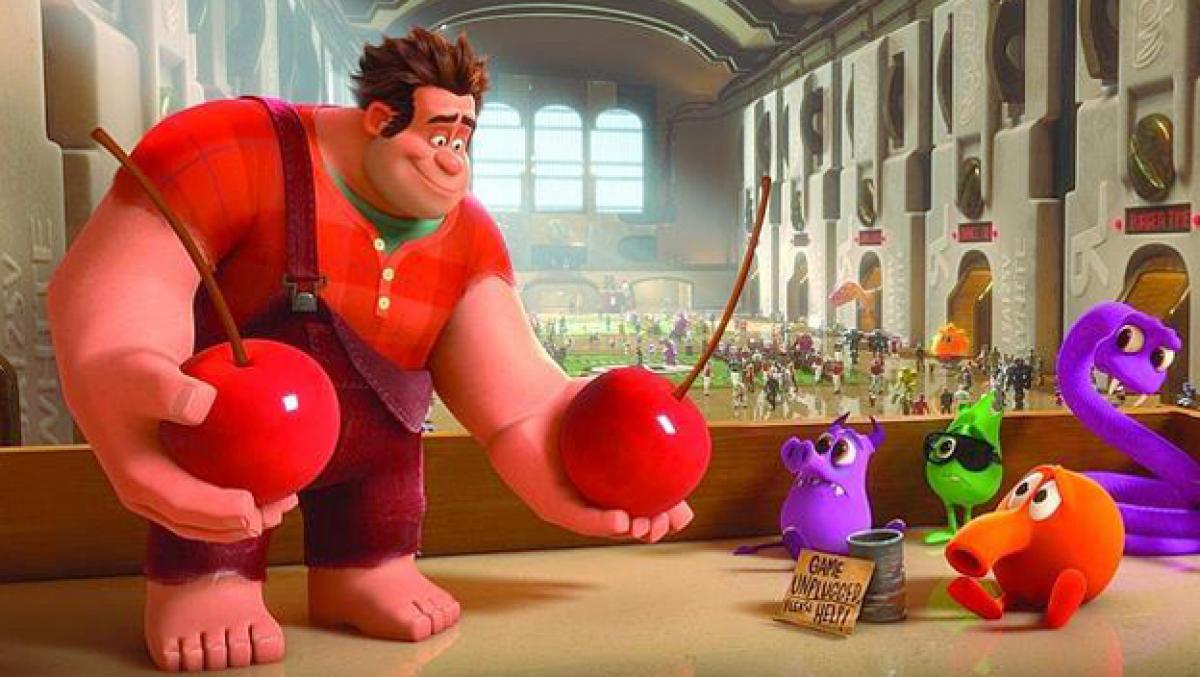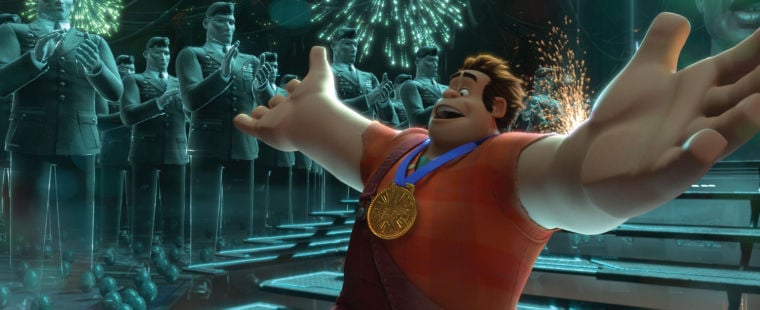
I’m always impressed by how quickly movies can make you curious about things you’re not necessarily familiar with. I think I’ve been to an arcade maybe three times in my life, but I really like Disney’s Wreck-It Ralph.
In the film, the titular Wreck-It Ralph lives in an arcade game where he’s the bad guy. The monster. The thing the civilians throw off the roof at the end after the good guy saves the day. This is all a role Ralph plays, and it’s an essential role within the system he’s in – if Ralph doesn’t come and break things, his counterpart, Fix-it Felix, can’t perform his heroic duties and the game is void. But even with all of that on the table, Ralph is regularly rejected both in his own game and in the arcade in general. In other words, Ralph lives without any external validation whatsoever, which really isn’t fair.
This presents Ralph with a seemingly clear character development: How do I get these people to respect me? How do I make my life better? The first five minutes present Ralph with the really harsh idea that “we can’t change who we are,” and that tenet is never really refuted. But it also doesn’t pretend that Ralph’s position isn’t unfair, or assume that he can’t strive for a better life.
Ralph’s first approach is to try to change things by making them better for himself – by focusing on how others treat him and on his own happiness. For this he is awarded a medal, a sign of his goodness that he believes no one can disprove. But the audience quickly gets the feeling that somehow that is not enough. Ralph will get the idea too. Eventually. He has to run into a few more things before he gets the hang of it.

A key factor in Ralph’s revelation is that he learns firsthand that there are others worse off than him. In this story, that’s Vanellope von Schweetz, a link in the go-kart game who holds Ralph’s medal hostage. It turns out that this sweet little brat knows exactly how he feels as an outsider. Only, Vanellope is not only marginalized, but actively attacked in her community for being different.
As is often the case in such stories, Ralph initially helps Vanellope because there is some kind of external reward (eg: I’ll get my medal back for this). But as circumstances force them to get to know each other better, Ralph begins to sympathize with Vanellope, largely due to their shared status as outsiders, and they become friends. It isn’t long before Ralph helps Vanellope because he sees someone in need, and this is where the so-called heroism in Ralph really begins to manifest itself.
The film’s final crisis sees Ralph help Vanellope in the qualifying race. In a rather unusual move for a hero’s journey, Ralph’s original motivation (the medal, or really any hope of a better life in his home game) is completely out of mind at this point. Ralph’s sole purpose in the third act is to fix the flaws in the system that oppresses Vanellope. From a screenwriter’s perspective, this kind of thing can make your story feel aimless or unfocused, but in this story, this switch is a natural turn not only in narrative events but also in the ideas Ralph must internalize. Ralph’s life is ultimately not affected by the outcome of Vanellope’s race, but Vanellope’s life is. And because Ralph is and always has been a hero at heart, he does everything he can to get Vanellope across the finish line.
Remarkable: It Is a reckoning within Ralph’s community, where the other characters in his game realize they depend on what Ralph contributes to their ecosystem, and after Felix gets a taste of what it means to be rejected, he’s in a better position to empathize with Ralph, which in turn helps him know how to advocate for him. We can imagine Ralph being invited to at least a few more street parties from now on, but we understand that this isn’t really what’s going to bring Ralph long-term happiness or peace of mind. Or life would probably be easier if everyone treated us like a hero rather than a villain, but we can’t just leave our happiness to others. Lasting happiness comes from making the world a better place for other underdogs, and that’s always within reach.
All of this to say…the Mario movie was really good, but when is Bowser getting his own movie?





